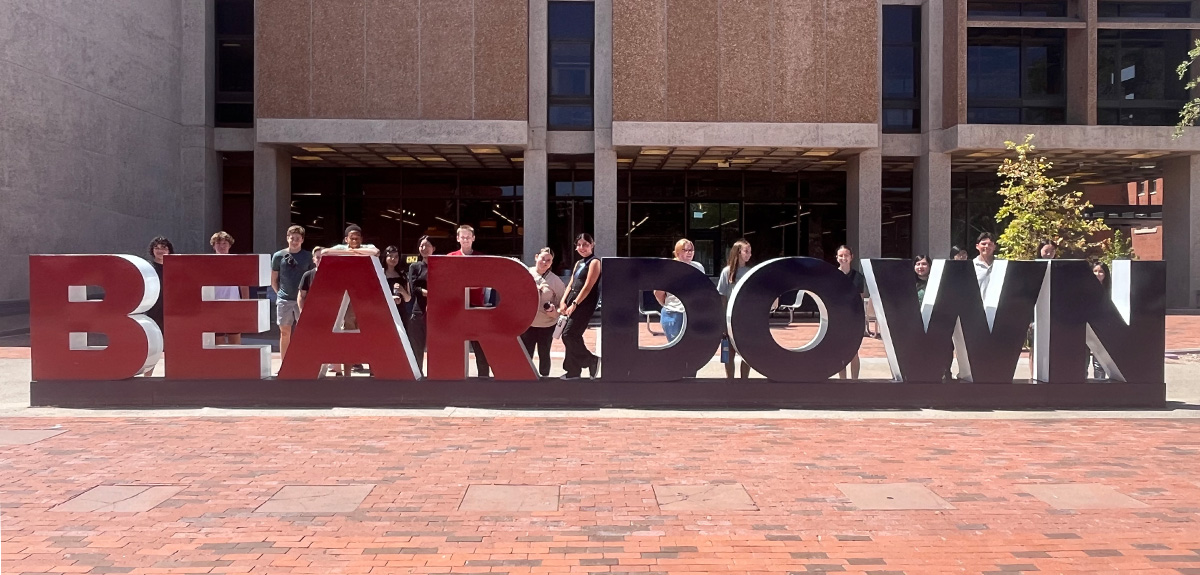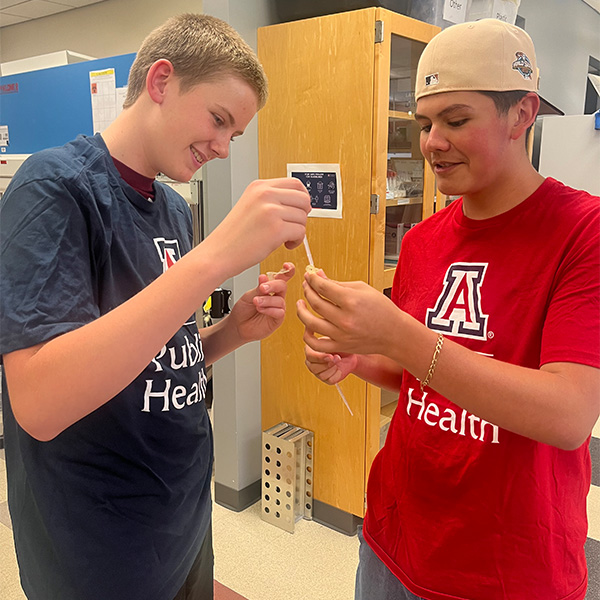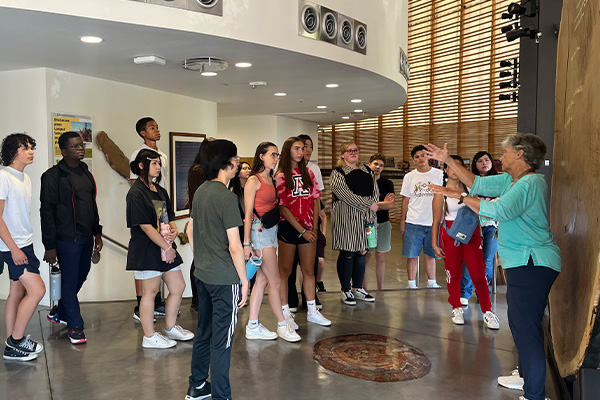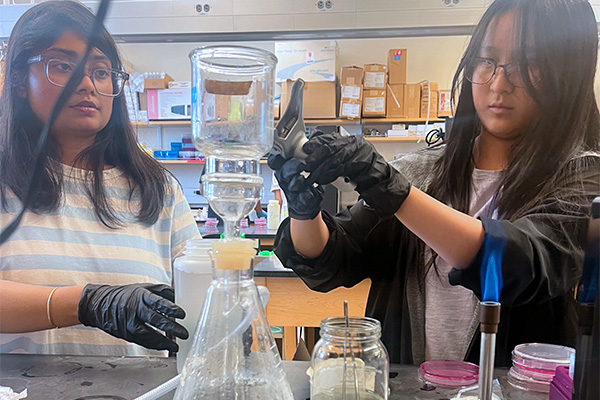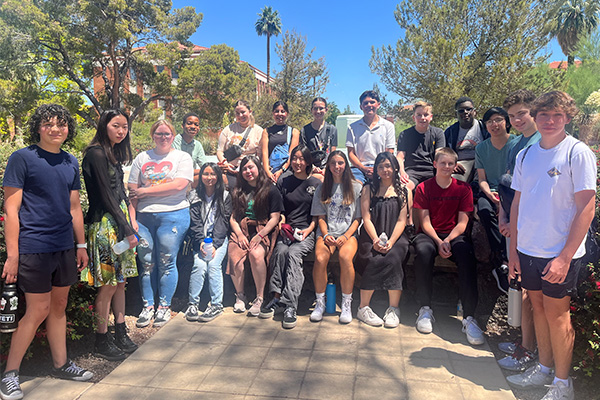High School Students Address Climate Change and Health in Young Global Leaders Program
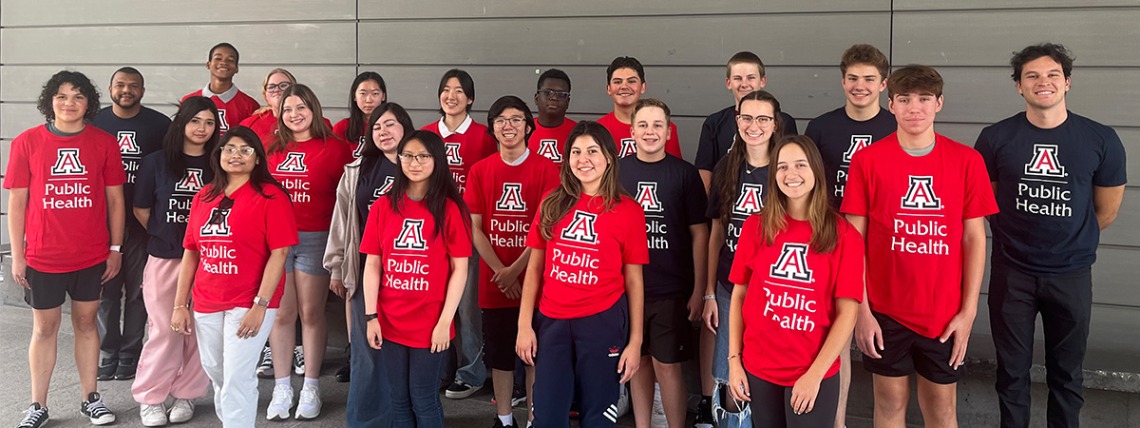
The annual Young Global Leaders program for high school students focused on climate change and health this year, and guided participants through projects and hands-on laboratory experiences to expand their knowledge of the challenges and potential solutions in this field. In a final presentation, the students shared their appreciation for all they had learned!
The annual Young Global Leaders program for high school students focused on climate change and health this year, and guided participants through projects and hands-on laboratory experiences to expand their knowledge of the health challenges that humanity faces in our warming world, and the potential solutions.
The program was organized by the college’s Global Health Institute (GHI) and the Environment, Exposure Science, and Risk Assessment Center (ESRAC) and this year the program was named Young Global Leaders: An Integrated Lab Experience Summer Program. Led by GHI senior manager Roxanna Apaez and research scientist Dr. Jonathan Sexton from ESRAC, the program brought together 18 talented students from high schools across Arizona for an enriching educational journey.
Students joined the program from Amphitheater High School, Canyon del Oro High School, Catalina Foothills High School, Gary K. Herberger Young Scholars Academy Phoenix, Ironwood Ridge High School, Pueblo High School, Salpointe Catholic High School, St. Augustine Catholic High School, Sunnyside High School, Tucson High School, University High School, The Potter’s School, and Quest for Education and Arts.
This year's program focused on the critical intersection of climate and health. Students engaged in a rich blend of interactive lectures and daily hands-on lab experiences, gaining invaluable insights into the University of Arizona campus. A series of enlightening guest lectures further enhanced the experience.
Docent Donna MacEachern from the Laboratory of Tree Ring Research introduced students to dendrochronology and its implications for climate studies. Dr. Yevheniia Varyvoda discussed Climate Change and the Future of Food, providing a global perspective on food security. Shannon Newton, MPH, CIH, explored the impact of Thermal Stress on human health, while Dr. Uje Sancho Sanchez offered an intriguing look into One Health and the UArizona Fish Lab.
Roxanna coordinated the "Art for Climate and Health: Expressing our Impact" project that guided students to creatively express what they had learned in a unique and impactful way. Additionally, doctoral students Priscilla Valenzuela, Anna Yunuen, and Soto Fernandez shared their research, inspiring students with their dedication and expertise.
A special thanks goes to our incredible Lab Team Leads – doctoral students Jumah Alkhaibari, Lance Picton, and Royani Saha, as well as undergraduate student Abby Cassius – who all did an outstanding job showcasing lab techniques and leading their teams through fun and exciting experiments. Their enthusiasm and expertise made the hands-on lab sessions a highlight of the program.
The program concluded with a final showcase where students presented their findings and shared their experiences. The GHI and ESRAC teams extend heartfelt thanks to Dean Iman Hakim, Dr. Kelly Reynolds, and our incredible donors for making this program possible. We also appreciate the support of parents, school administrators, teachers, and counselors. A special, enthusiastic shout-out goes to our brilliant student participants—your passion and dedication for public health have truly inspired us all!
We're excited to announce that details for the Summer 2025 program and application process will be revealed in February 2025. The Global Health Institute aims to impact local and global communities, thanks to our generous supporters who fund student programs and scholarships. Please consider designating a gift to the Young Global Leaders Program today!

